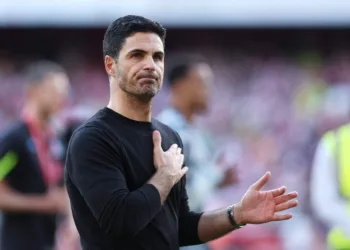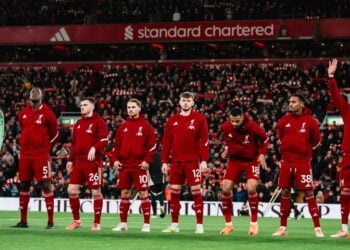Odisha FC owner Rohan Sharma has broken his silence on the controversial decision to suspend club operations, providing unprecedented insight into the challenges facing ISL clubs amid the ISL 2025-26 season uncertainty. In a candid social media statement, Sharma explained the difficult circumstances that forced his hand, revealing the financial pressures, government disputes, and league uncertainty that culminated in the bold decision to temporarily halt player contracts. His revelations offer a rare glimpse into the operational realities of running an ISL franchise during one of Indian football’s most turbulent periods.
Table of Contents
The Crisis Unfolds: Why ISL 2025-26 Faces Uncertainty
The Indian Super League has officially placed the 2025-26 season “on hold” due to uncertainty surrounding the renewal of the Master Rights Agreement (MRA) between Football Sports Development Limited (FSDL) and the All India Football Federation (AIFF). The current MRA is scheduled to expire on December 8, 2025 – approximately one-third of the way through a typical ISL season, which runs from September to April.

The Supreme Court has barred the AIFF from negotiating any major agreements until its ruling in a draft constitution case. This legal impasse has created a domino effect across Indian football, with eight ISL clubs, including Odisha FC, writing to AIFF President Kalyan Chaubey expressing serious concerns about the uncertain future.
Master Rights Agreement Crisis Details
| Aspect | Details |
|---|---|
| Current MRA Expiry | December 8, 2025 |
| Annual Fee to AIFF | ₹50 crores |
| Legal Barrier | Supreme Court directive preventing new negotiations |
| Season Timeline | September 2025 – April 2026 (typical ISL calendar) |
| Clubs Affected | All 14 ISL franchises |
Rohan Sharma Opens Up: The Real Story Behind the Suspension
In a detailed social media thread that has garnered widespread attention, Odisha FC owner Rohan Sharma provided an unfiltered account of the circumstances that led to the suspension decision. Breaking his silence on the controversial move, Sharma revealed the mounting pressures that made the decision inevitable.
“We haven’t shut down the club despite the headlines. Key staff members are retained, our women’s team will be operational. However, it becomes harder to justify to my stakeholders to sink Crs upon Crs with nothing to show for it, and no end in sight,” Sharma candidly explained in his X (formerly Twitter) post.
The owner’s transparency extends beyond financial concerns, as he opened up about the multiple challenges facing the club simultaneously. His revelations paint a picture of an organization caught between league uncertainty, government indifference, and commercial impossibility.
Sharma’s Candid Revelations About the Decision
In his most revealing statement yet, Sharma admitted that the suspension wasn’t part of their original plan. “We didn’t go into this offseason planning to take this step. In fact, we had made 5 signings until it became clear things were delayed. We desperately hope the above issues get resolved; maybe doing this will prompt people to fast-track solutions so we can get back to work,” he revealed.
This admission underscores the reactive nature of the decision and Sharma’s hope that the drastic action might catalyze solutions from league organizers and government officials. His openness about the strategic timing of the announcement reveals a calculated move designed to force stakeholders into action.
Challenges Facing Odisha FC: Sharma’s Perspective
The club’s decision stems from multiple interconnected issues:
1. League Uncertainty: No clarity on when the ISL 2025-26 season will commence, making planning impossible.
2. Infrastructure Issues: Ongoing disputes with the Odisha government over access to Kalinga Stadium, with the club receiving no response to rental requests despite repeated attempts.
3. Commercial Challenges: Unable to secure sponsorship deals or engage investors without a confirmed season schedule.
4. Operational Constraints: The club had already made five player signings before the situation became clear, demonstrating their initial commitment to the season.

Impact on Club Operations
| Category | Status | Details |
|---|---|---|
| Men’s Team | Suspended | All player and staff contracts halted from August 5, 2025 |
| Women’s Team | Operational | Continues preparation for Indian Women’s League 2025-26 |
| Key Staff | Retained | Essential personnel maintained for future operations |
| Academy Programs | Under Review | Youth development programs affected by uncertainty |
The Wider ISL 2025-26 Crisis
The crisis extends beyond Odisha FC, with most ISL clubs delaying pre-season preparations, pausing recruitment of players and coaches, and freezing operational budgets. Seven ISL clubs have also communicated to Durand Cup organizers that they will not participate in the 2025 edition of Asia’s oldest football tournament, citing the same uncertainty.
Timeline of the Crisis
April 2025: AIFF Executive Committee forms eight-member task force to engage with FSDL over MRA renewal
June 2025: AIFF releases 2025-26 calendar without mentioning ISL, raising speculation about the league’s future
July 2025: FSDL formally informs clubs that the 2025-26 season is on hold due to contractual uncertainties
July 29, 2025: Eight ISL clubs jointly write to AIFF President expressing concerns and requesting formal consultation
August 1, 2025: Odisha FC announces suspension of operations
Sharma’s Frustration with Government Relations
In perhaps his most critical public statements, Rohan Sharma opened up about the deteriorating relationship with the Odisha government. His frustration was evident as he revealed the club’s repeated attempts to secure stadium access have been met with silence.
“It’s funny because we (AGAIN) sent a letter asking if we can use Kalinga (even on a rental basis), but we haven’t received a response, even though the deadline was over a week ago. We are done trying with this govt in Odisha. Poorly run compared to the previous admin,” Sharma stated bluntly in another social media post.
This public criticism marks a significant shift in Sharma’s approach, as he previously maintained diplomatic relations with state authorities. His decision to go public with these grievances reflects the depth of his frustration and the club’s desperation for clarity on basic operational needs.
AIFF Response and Future Outlook
AIFF President Kalyan Chaubey has assured stakeholders that the ISL 2025-26 season will take place, though it may face delays rather than cancellation. Chaubey stated that once the Supreme Court delivers its ruling, the AIFF will consult with all stakeholders to ensure tournaments can be conducted smoothly.

Potential Solutions Being Discussed
Industry sources suggest several potential restructuring scenarios:
- New Partnership Model: Formation of a new entity with clubs holding 60% stake, FSDL 26%, and AIFF 14%
- Compressed Schedule: Running a shortened season if legal clarity emerges by late 2025
- Extended Timeline: Pushing the season end date to accommodate a delayed start
Impact on Indian Football Ecosystem
The ISL 2025-26 uncertainty threatens to unravel years of progress in Indian football development. The clubs’ letter to AIFF highlighted achievements in youth development, infrastructure, and community engagement that could be at risk.
Affected Areas
| Sector | Impact Level | Consequences |
|---|---|---|
| Player Development | High | Halted youth operations, delayed recruitment |
| Commercial Partnerships | High | Sponsorship deals on hold, investor uncertainty |
| Fan Engagement | Medium | Season ticket sales suspended, community programs affected |
| International Competitions | Medium | AFC Cup qualification and continental participation at risk |
What Sharma’s Revelations Tell Us About ISL Club Management
Rohan Sharma’s unprecedented openness about Odisha FC’s operational challenges provides rare insight into the business realities of running an ISL franchise. His willingness to discuss financial pressures, stakeholder concerns, and government relations publicly represents a departure from the typically diplomatic approach of club owners.
Through his statements, Sharma has effectively pulled back the curtain on the complex web of dependencies that ISL clubs navigate – from league organizers and government authorities to sponsors and investors. His candid admission about the difficulty of justifying continued losses to stakeholders reveals the commercial pressures that many clubs likely face but rarely discuss publicly.
What This Means for Indian Football
Rohan Sharma’s hope that Odisha FC’s action might “prompt people to fast-track solutions” reflects the broader sentiment among club owners that dramatic steps are necessary to resolve the impasse. The suspension serves as a wake-up call for all stakeholders in Indian football.
The decision also raises questions about the sustainability of the current ISL model and whether structural changes are needed to prevent similar crises in the future. With football legend Sunil Chhetri calling for solidarity and expressing concern over the delays, the entire Indian football community is watching for resolution.
Rohan Sharma’s decision to open up about Odisha FC’s suspension represents more than transparent communication – it’s a strategic move that exposes the systemic challenges facing Indian football. His candid revelations about financial pressures, government relations, and operational uncertainties provide unprecedented insight into the realities of ISL club management during crisis.

By breaking his silence and sharing the club’s struggles publicly, Sharma has transformed a business decision into a catalyst for broader discussions about league sustainability, government support, and the future of professional football in India. His hope that transparency might “fast-track solutions” reflects both his pragmatic approach and his commitment to the sport’s development.
As the ISL 2025-26 season remains in limbo, Sharma’s willingness to speak openly about these challenges may inspire other club owners to share their perspectives, potentially creating the collective pressure needed to resolve the ongoing crisis. For now, his revelations serve as both a warning about the current state of Indian football and a call to action for all stakeholders to prioritize the sport’s future.
Read More: Everton on Verge of £29M Breakthrough: Kiernan Dewsbury-Hall Deal Nears Completion
FAQs
Why has the ISL 2025-26 season been put on hold
The season is on hold due to uncertainty over the Master Rights Agreement renewal between FSDL and AIFF. The current agreement expires in December 2025, and the Supreme Court has barred new negotiations until resolving the AIFF constitution case.
What did Rohan Sharma reveal about the suspension decision?
Sharma opened up about multiple challenges: league uncertainty, lack of government response to stadium rental requests, inability to secure sponsorships, and pressure from stakeholders. He admitted the club had already made five signings before realizing the season delays, and expressed hope that the suspension might prompt faster solutions from authorities.
What did Rohan Sharma reveal about the suspension decision?
Sharma opened up about multiple challenges: league uncertainty, lack of government response to stadium rental requests, inability to secure sponsorships, and pressure from stakeholders. He admitted the club had already made five signings before realizing the season delays, and expressed hope that the suspension might prompt faster solutions from authorities.
Is Odisha FC permanently shutting down?
No, owner Rohan Sharma confirmed the suspension is temporary. Key staff are retained, and the women’s team continues operations for the upcoming Indian Women’s League season.
Which other ISL clubs are affected by this crisis?
All 14 ISL clubs are impacted. Eight clubs (including Odisha FC, Bengaluru FC, and Kerala Blasters) have jointly written to AIFF expressing concerns, while seven clubs have withdrawn from the 2025 Durand Cup.
What happens to player contracts during this suspension?
Odisha FC has suspended all men’s team player and staff contracts from August 5, 2025. Other clubs have frozen recruitment and paused pre-season preparations while awaiting clarity.
When might the ISL 2025-26 season actually begin?
AIFF President Kalyan Chaubey suggests the season will likely be delayed rather than canceled. The timeline depends on Supreme Court ruling and subsequent negotiations between AIFF and FSDL, potentially pushing the start beyond the traditional September timeframe.








